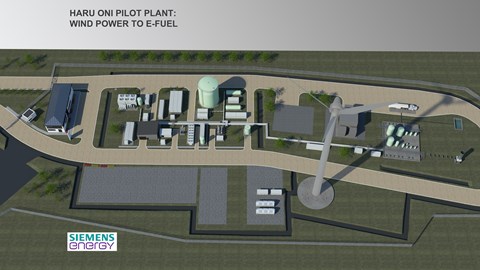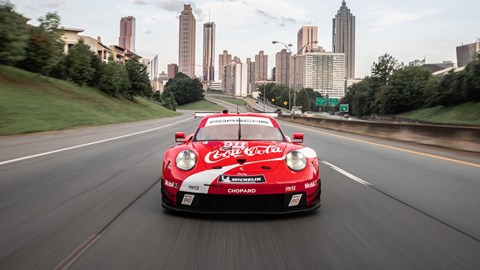► 130,000-litres by 2022
► Siemens Energy also involved
► It'll be used in motorsport
Porsche has teamed up with Siemens Energy to produce 130,000 litres of climate-neutral eFuel by 2022. Called the Haru Oni project and based in southern Chile due to its windy climate, the new venture aims to step production to 55 million litres of eFuel a year by 2024, and then to 550 million litres by 2026.
‘Electromobility is a top priority at Porsche. eFuels for cars are a worthwhile complement to that – if they’re produced in parts of the world where a surplus of sustainable energy is available,’ said Porsche CEO Oliver Blume. ‘They are an additional element on the road to decarbonization. Their advantages lie in their ease of application: eFuels can be used in combustion engines and plug-in hybrids, and can make use of the existing network of filling stations.’
What is eFuel or synthetic fuel and how is it made? ***
eFuels are essentially complex hydrocarbons that have been created by man, rather than the lengthy natural and man-made procress it takes to create fossil fuels. Water is separated into hydrogen and oxygen using wind-generated electricity and then CO2 filtered from the air is combined with ‘green hydrogen’ to form methanol. It’s then turned into useable fuel by ExxonMobil-licensed Methanol to Gasoline (MTG) technology.
Siemens Energy will provide the tech behind the renewable wind-energy, as well as the Proton Exchange Membrane used for the electrolysis (separating hydrogen from oxygen). As the main customer of the eFuel, Porsche will be starting with an initial investment of 20 million euros.

Where will it be used?
Synthetic fuels or eFuels can theoretically be used by any existing car, and for Porsche – who will be the sole customer of the Haru Oni project’s output – that’s the long-term plan. Like other brands, Porsche cites electrification as the future of sustainable transport: but eFuels speed up this process by reducing the pollution of ICE and hybrid powertrains.
As you’d expect, it’s being viewed by many as a silver bullet to the pollution problems of ICE-powered vehicles and could prove an interesting diversion on the apparent march to EVs.
‘Electric mobility is an exciting and convincing technology but, taken on its own, it is taking us towards our sustainability targets at a slower pace than we would like," explains Michael Steiner, a member of Porsche’s R&D board. "That's why we are also committing to eFuels – and not ignoring possible applications in motor sports either.'

Porsche’s eFuel is going to be produced in extremely low numbers for now; and Stuttgart says it’s destined for use in Stuttgart’s motorsport programs, Experience Centres – and later serial production cars.
The former use could be the most interesting, as eFuel or synthetic fuel gives ICE-based motorsport series a new way to promote a green message. That could be crucial after a year in which Honda announced its decision to leave F1 next year, just months before BMW and Audi announced their decision to leave Formula E.